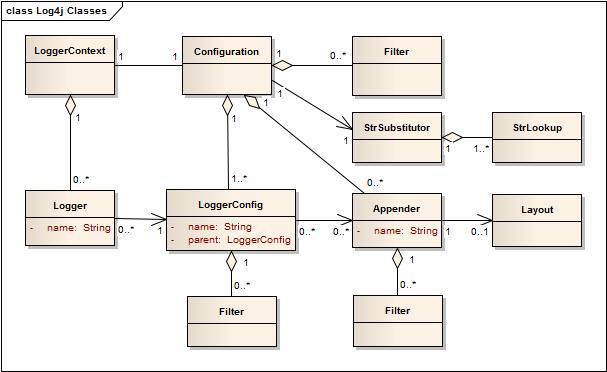Apparently, JSONLayout in log4j2 doesn't have timestamp pattern support. Normally it only has JSON formatting options, but nothing as such pattern option.
{
"configuration": {
"name": "logggg",
"packages" : "logger.savemyjob",
"appenders": {
"RollingFile": {
"name": "rollingStone",
"fileName": "async_rolled.log",
"filePattern": "async_rolled-%d{MM-dd-yy-HH-mm-ss}-%i.log.gz",
"immediateFlush" : false,
"JSONLayout": {
"complete": true,
"compact": false,
"eventEol": true
},
"SizeBasedTriggeringPolicy": {
"size": "10 MB"
},
"DefaultRolloverStrategy": {
"max": "10"
}
}
},
"loggers": {
"root": {
"level": "debug",
"appender-ref": {
"ref": "rollingStone"
}
}
}
}
}
Log Example,
{
"timeMillis" : 1482231551081,
"thread" : "main",
"level" : "debug",
"endOfBatch" : false,
"threadId" : 1,
"threadPriority" : 5,
"message" : "log4j might suck"
}
And when I looked at their API, looks too verbose and don't see quite an easier way adding a timestamp field.
JsonLayout plugin seems to be the one I need to override, since its final can't even extend but otherwise I have to copy the whole dependent classes.
@Plugin(name = "JsonLayout", category = Node.CATEGORY, elementType = Layout.ELEMENT_TYPE, printObject = true)
public final class JsonLayout extends AbstractJacksonLayout {
protected JsonLayout(final Configuration config, final boolean locationInfo, final boolean properties,
final boolean encodeThreadContextAsList,
final boolean complete, final boolean compact, final boolean eventEol, final String headerPattern,
final String footerPattern, final Charset charset) {
super(config, new JacksonFactory.JSON(encodeThreadContextAsList).newWriter(locationInfo, properties, compact),
charset, compact, complete, eventEol,
PatternLayout.createSerializer(config, null, headerPattern, DEFAULT_HEADER, null, false, false),
PatternLayout.createSerializer(config, null, footerPattern, DEFAULT_FOOTER, null, false, false));
}
}
The architecture looks more complicated than I expected :(, I am tracing from the Logger.

I also considered changing the LogEvent itself,
public interface LogEvent extends Serializable {
@Deprecated
Map<String, String> getContextMap();
ReadOnlyStringMap getContextData();
ThreadContext.ContextStack getContextStack();
String getLoggerFqcn();
Level getLevel();
String getLoggerName();
Marker getMarker();
Message getMessage();
long getTimeMillis();
StackTraceElement getSource();
String getThreadName();
long getThreadId();
int getThreadPriority();
Throwable getThrown();
ThrowableProxy getThrownProxy();
boolean isEndOfBatch();
boolean isIncludeLocation();
void setEndOfBatch(boolean endOfBatch);
void setIncludeLocation(boolean locationRequired);
long getNanoTime();
String getTimestamp();
}
and also MutableLogEvent
public class MutableLogEvent implements LogEvent, ReusableMessage {
public void initFrom(final LogEvent event) {
SimpleDateFormat standardDateFormat = new SimpleDateFormat("yyyy-MM-dd HH:mm:ss.SSS");
this.timestamp = standardDateFormat.format(new Date(event.getTimeMillis()));
}
}
I'm guessing it might work, though it broke few core log4j-core tests. I basically want to know the tricks to add extra json field with minimum change.
I see few other impls like JSONEventLayoutV1, which seems to be totally different impl than log4j json api which is pretty good performance wise.
Here's my failed attempt to override, LogEvent, https://github.com/prayagupd/sell-peace/blob/custom_timestamp/supply-peace/src/main/java/org/apache/logging/log4j/core/DnLogEvent.java
The questions is getting longer, I basically want to know the important things not to miss when I override the log4j2 api.
If this is just a matter of adding a new field containing the timestamp, apart from the timeMillis provided by default, why don't You try to use Lookups on the new custom field.
The JsonLayout configuration may then looks like this:
<JsonLayout>
<KeyValuePair key="timestamp" value="$${date:yyyy-MM-dd'T'HH:mm:ss.SSSZ}" />
</JsonLayout>
The $$ is the Lookup, and the characters behind date: are the format that java SimpleDateFormat can accept.
So, In short I needed to write 7 objects. The flow is as below
CustomLogEvent
-> LogEventToCustomLogEventConverter
-> CustomLogEventMixIn
-> CustomLog4jJsonModule
-> CustomLog4jJsonObjectMapper
-> CustomJacksonFactory
-> CustomJSONLayout
CustomJSONLayout is the plugin I would use in my log4j2.json that supports params as config.
So, I ended up using a Inheritence and composition at the same time for LogEvent.
public class JsonLogEvent implements LogEvent{
static final String TIMESTAMP_FORMAT = "yyyy-MM-dd HH:mm:ss";
static final DateFormat isoDateFormat = new SimpleDateFormat(TIMESTAMP_FORMAT);
private LogEvent wrappedLogEvent;
public JsonLogEvent(LogEvent wrappedLogEvent) {
this.wrappedLogEvent = wrappedLogEvent;
}
public String getTimestamp() {
return isoDateFormat.format(new Date(this.getTimeMillis()));
}
}
And CustomLogEventMixIn, that has timestamp as key.
@JsonSerialize(converter = JsonLogEvent.LogEventToCustomLogEventConverter.class)
@JsonRootName(XmlConstants.ELT_EVENT)
@JsonFilter("org.apache.logging.log4j.core.impl.Log4jLogEvent")
@JsonPropertyOrder({"timestamp", "threadName", "level", "loggerName", "marker", "message", "thrown",
XmlConstants.ELT_CONTEXT_MAP, JsonConstants.ELT_CONTEXT_STACK, "loggerFQCN", "Source", "endOfBatch", "timeMillis" })
abstract class CustomLogEventMixIn extends LogEventMixIn {
@JsonProperty("timestamp")
public abstract String getTimestamp();
private static final long serialVersionUID = 1L;
}
public static class LogEventToCustomLogEventConverter extends StdConverter<LogEvent, JsonLogEvent> {
@Override
public JsonLogEvent convert(LogEvent value) {
return new JsonLogEvent(value);
}
}
LogEventMixIn is used by Log4jJsonModule
public class CustomLog4jJsonModule extends Log4jJsonModule {
private static final long serialVersionUID = 1L;
CustomLog4jJsonModule() {
super();
}
@Override
public void setupModule(final SetupContext context) {
super.setupModule(context);
context.setMixInAnnotations(LogEvent.class, CustomLogEventMixIn.class);
}
}
public class CustomLog4jJsonObjectMapper extends ObjectMapper {
public CustomLog4jJsonObjectMapper() {
this.registerModule(new CustomLog4jJsonModule());
this.setSerializationInclusion(JsonInclude.Include.NON_EMPTY);
}
}
Tracking down how JsonLayout being used was very helpful.
If you love us? You can donate to us via Paypal or buy me a coffee so we can maintain and grow! Thank you!
Donate Us With